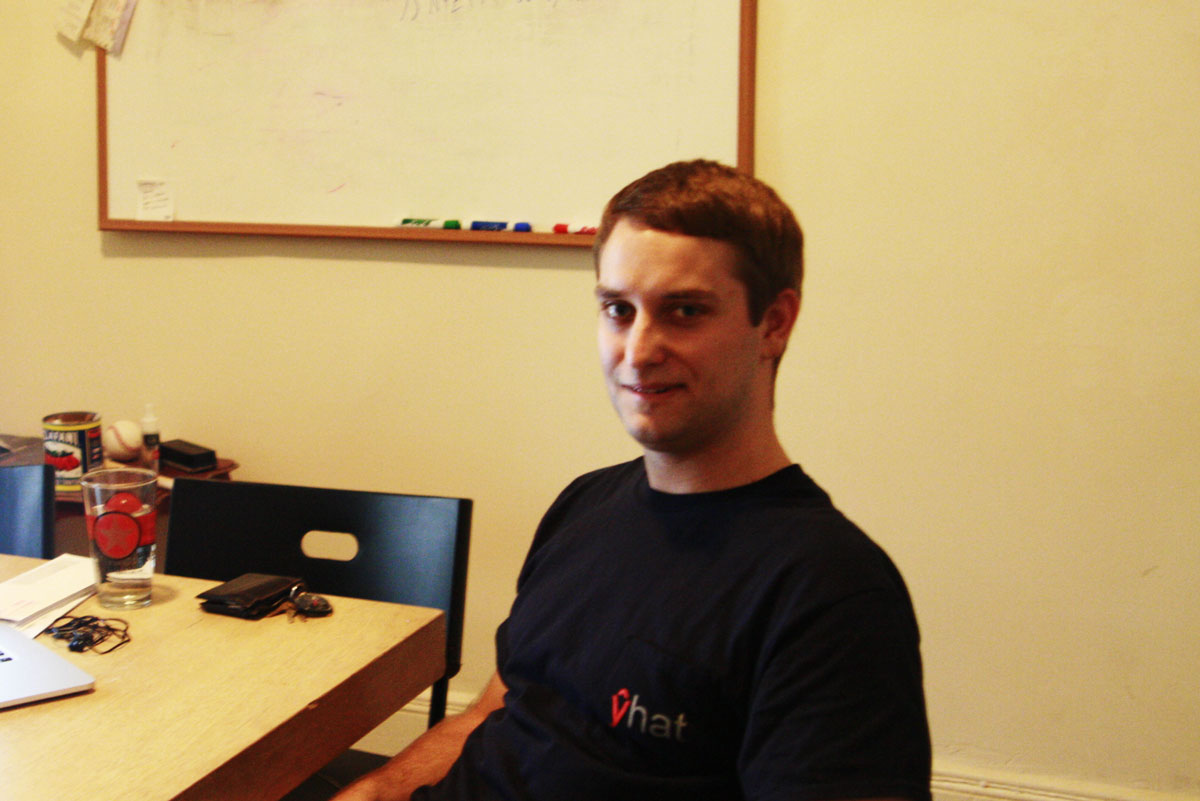Yhat (pronounced “why hat”) aims to bridge the gap between big data analytics and website software. The developer-focused tool is a platform for deploying analytics into the front end of your company’s web presence, while still enabling developers to make changes to models without downtime.
It’s ‘predictive modeling’ that wants to make API-crazed web app developers swoon.
Say you own a small ecommerce site, but you’re struggling to develop a reliable, accurate product recommendation widget for customers. Yhat cofounder Austin Ogilvie said that his software would facilitate switching between using a small amount of purchasing data and third party data from Facebook and Twitter. Because Yhat enables developers to make changes in real time, without downtime, they could keep pushing out tweak after tweak until the mix seemed to be working well for new users — building an application that had the right mix between purchase data and social web network info.
Another example: a political site might want to be optimized to keep visitors on the site as long as possible. They might want to rig up their CMS so that it features different pieces of content depending on the visitor. They might find that the most important information about a person is where they are physically located, but it might also be true that what they clicked over from is important. As Ogilvie put it in an email, “Yhat let’s me fit and deploy my classifier continuously, so my website’s content curator is always up to date and relevant even as business conditions, time, and geographic user mix changes.”
They have had a cloud based version in beta testing for six months, but in November they began piloting their Enterprise version.
Yhat’s cofounders — Greg Lamp and Ogilvie — both went to the University of Virginia and worked together at OnDeck, a financial technology company that automates small business loans. The two realized that there was a suite of tools that data scientists like to use to evaluate data, but those tools do not communicate well with the consumer facing side of websites. So they built Yhat as a light, low-touch, flexible tool to facilitate that communication.
The Enterprise and the Cloud version are essentially the same product, with one difference that is critical to certain large companies. The Enterprise version allows customers to load the Yhat tool directly onto their own site. This means that Enterprise clients don’t have to share any of their data directly with the startup, which gives those customers a level of data security that large companies seek.
Right now, to use either version, potential clients need to request access on the Yhat website.
The two went full time with the project in June, though they began working on it as a side project in January of this year. After completing a seed round with RRE Ventures, Contour Venture Partners and bōldstart Ventures, they have one other full time employee, a front-end developer. The team of three currently works from Ogilvie and Lamp’s home and office in Carroll Gardens.
“We want to make it really easy for companies to use all the analytics that are being produced,” Lamp told us.
If you want to get a sense for what the company’s tool can do, check out their blog post, Recommendation System in R. They found a large data set of beer reviews by multiple reviewers. They used it to create relationships between the beers. You can see a simple app they created using the dataset and their software. It allows you to pick one beer you like and one kind of beer you’d like to try and it will suggest some specific beers, based on the experiences of other users that liked the same beer as you.







